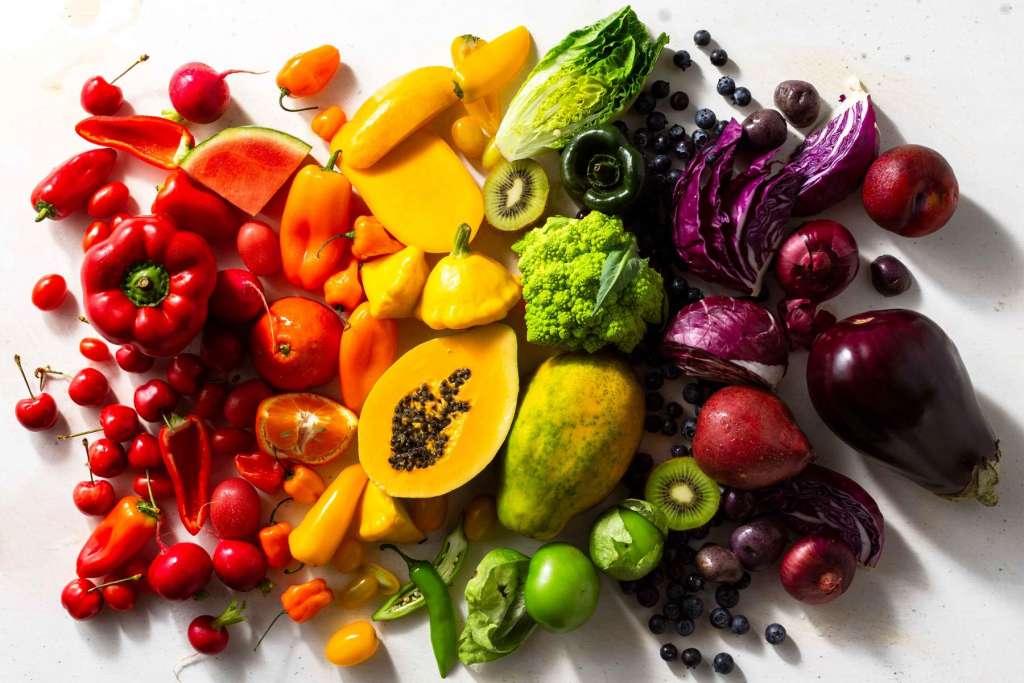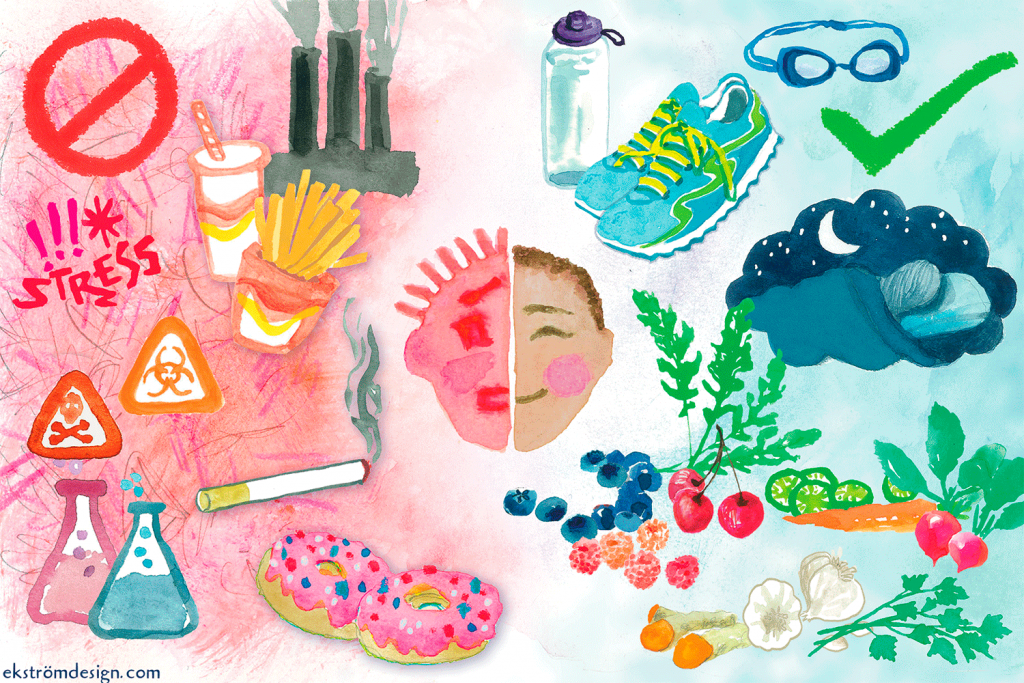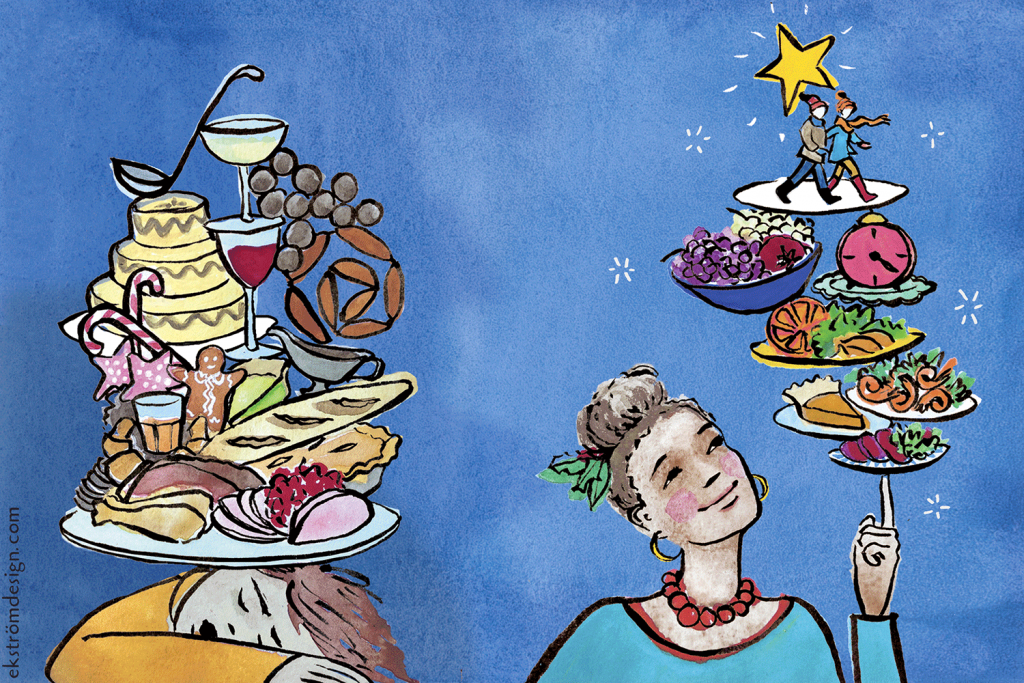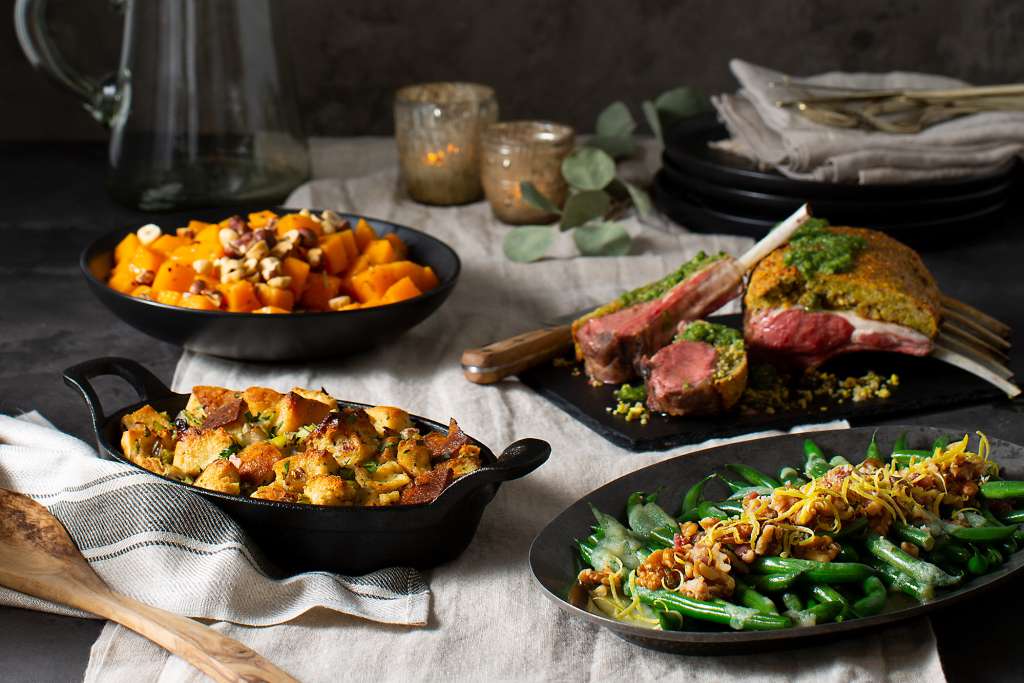Seven Ways to Eat Right When You’re a New Mom
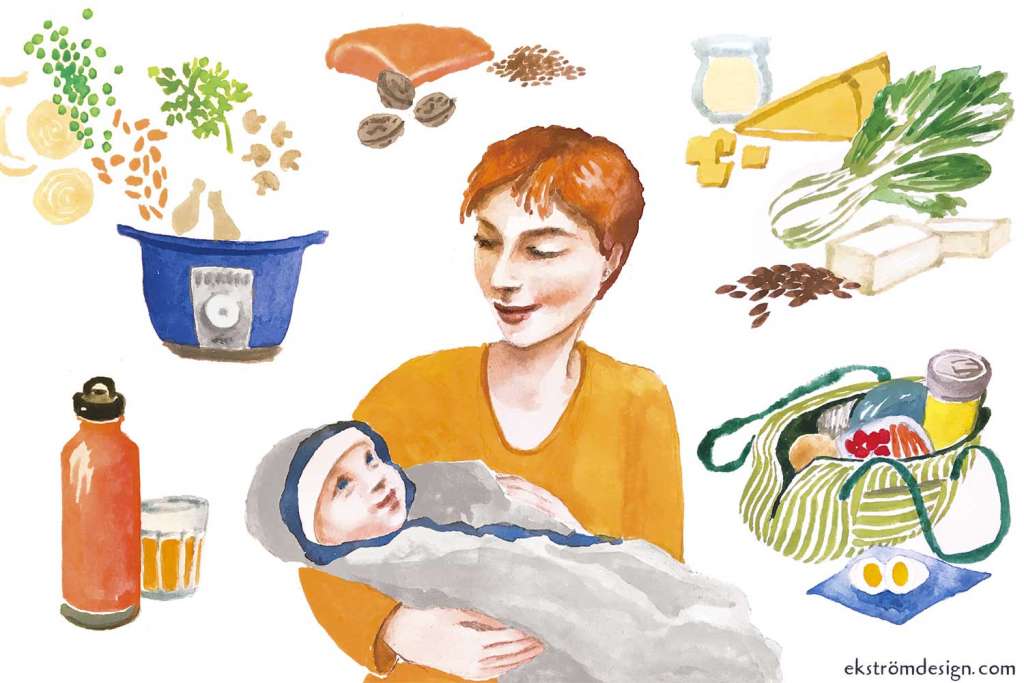
Along with the joys of the early days of motherhood, new parents often deal with exhaustion and the changes that come with learning to care for a brand new person. Mothers preoccupied with the demands of their newborn sometimes forget to take care of themselves. But good nutrition is critical for both babies and their mothers. Recovering from the stresses of pregnancy and birth, while supporting healthy milk production for breastfeeding moms, requires extra attention to nutrition. Here are some tips to help moms stay healthy while having fun with the baby.
Bone up on calcium
A woman’s need for calcium is greater during pregnancy and while breastfeeding. Studies have shown that women often lose three-to-five percent of their bone mass during breastfeeding, however, they recover it rapidly after weaning. This bone loss may be caused by the growing baby’s increased need for calcium, which is drawn from the mother’s bones. The National Academy of Sciences recommends that women who are pregnant or breastfeeding consume 1,000 milligrams of calcium every day. In addition to dairy, good sources of calcium include dark green, leafy vegetables, such as broccoli, collard greens, and bok choy. Canned sardines and salmon, tofu, and almonds can also boost calcium levels.
Bump up the calories
Don’t be in a rush to lose your pregnancy weight—rapid weight loss can impact breast milk production. If you’re breastfeeding, you’ll need an additional 500 calories a day. A gradual weight loss of one-to-four pounds per month for a nursing mother is appropriate.
Get your omega-3s
For optimal newborn brain, eye, immune, and nervous system development make sure you’re getting adequate omega-3 fatty acids. Eating two to three servings of fatty fish, like trout and salmon, per week can help boost the amount of omega-3s in breast milk. Plant sources of omega-3 fatty acids include walnuts, flax, and chia seeds.
Power up on protein
Newborns need protein to help sustain growth, and moms need it to promote healing and recovery from the physiological strains of pregnancy and childbirth. Lactating women should get approximately 20 grams of additional protein daily. Lean meat, fish, legumes, dairy, nuts, seeds, and eggs are good choices for boosting protein intake.
Snack with your newborn
Babies tend to eat every two to four hours. Having small, frequent, nutritious snacks with your baby is a good way to make sure you’re eating, too. Keep a few snacks in the diaper bag for those times when hunger strikes and you’re not near the kitchen. Pre-cut fruits and vegetables, hard-cooked eggs, yogurt, smoothies, nuts, cheese, and whole grain crackers are great snacks that you can enjoy while your little one eats.
Stay hydrated
Maintaining an adequate amount of fluids is important for health, as well as keeping up milk supply. Pay attention to your body’s signals—new mothers often ignore thirst. Invest in a large water bottle to help ensure you stay hydrated. Fill it up in the morning and make sure you have finished it (at least once) before you head to bed.
Take it easy
This is not the time to start getting fancy in the kitchen. Make it easy on yourself and choose simple-to-prepare meals. Shortcuts, like ordering Sun Basket meals, can make your life much easier and help keep your family eating healthfully. Break out the slow-cooker or multi-cooker to help get meals on the table with minimal effort. Fresh or frozen pre-cut vegetables, cooked rotisserie chicken, and frozen parboiled quinoa and brown rice can also help shorten meal prep times.
Artwork by Ekström Design


